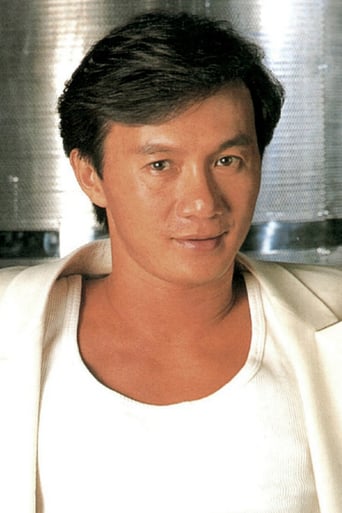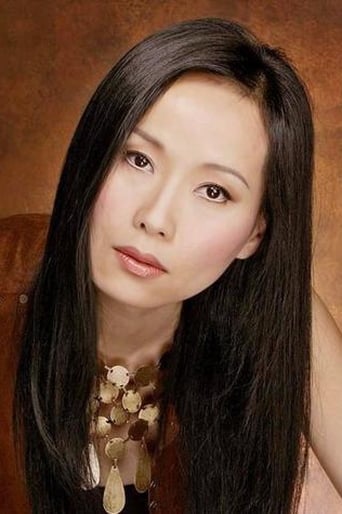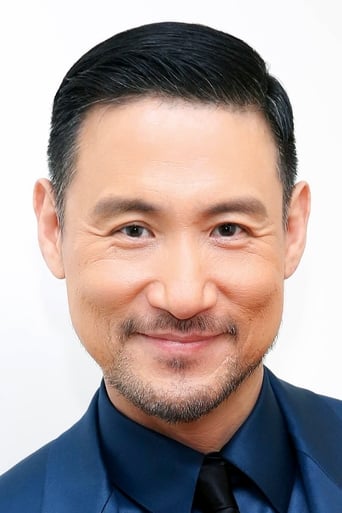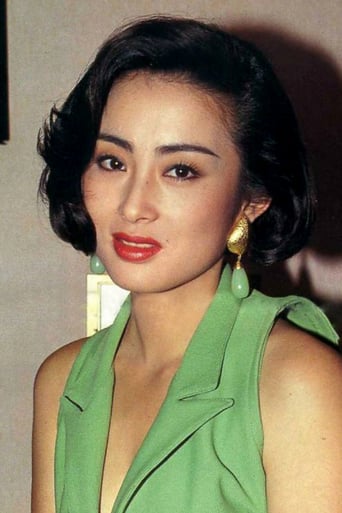Tweekums
Set during the Ming dynasty this film opens with the theft of the 'Sunflower Manual' from the Imperial Palace. This, it turns out, is a martial arts manual giving details of a powerful secret technique. Now just about everybody appears to want the scroll. The scroll is hidden under a waterwheel and two students of the Mount Hua Sect, Linghu Chong and Yue 'Skinny Boy' Lingshan, are asked to inform the son of the man who took it. They will encounter many dangers including from some of the people they thought they could trust most.I would usually describe the plot in a bit more detail but to be honest I was a bit confused a fair amount of the time… strangely this wasn't much of a problem as this film is all about the action and the action rarely stops. There is a lot of wire-assisted martial arts, fights involving mystical powers, poisoning and even a fighter who produces snakes from her sleeves! In in brief lulls between the action scenes there are some amusing moments, many involving the existence of a second scroll which merely contains the lyrics to a song the protagonists learn along the way. There is also the running gag that nobody apart from Linghu realises that 'Skinny Boy' is actually an attractive young woman! While this is mostly light hearted there is some spilt blood and, in the film's most disturbing moment, the sight or a recently removed eyeball! The cast do a solid job, most notably Samuel Hui and Cecilia Yip as our two protagonists; the rest are pretty impressive too and appeared to be having a good time. Overall I'd certainly recommend this to fans of Wuxia films; it may be a little confusing at times but is still a lot of fun.These comments are based on watching the film in Cantonese with English subtitles.
DICK STEEL
Which brings us to Swordsman, or as the novel titled, The Smiling, Proud Wanderer, whom Chow Yun-Fat took on the title Linghu Chong role in a TVB serial of old. Swordsman is part of a loose trilogy of sorts, the sequels being Swordsman II starring an almost different cast in leading roles, and Swordsman: The East is Red, made solely to capitalize on the popularity of actress Lin Ching-Hsia who made her memorable comeback role as The Invincible Dawn from the second movie. Amongst the three, Swordsman is still my favourite, even though Swordsman II had more fantastical fighting sequences, no doubt made more exciting by the charismatic presence of pugilist Jet Li. Swordsman: The East is Red, was largely wasted, and save for Lin, none of the other cast members returned, and had a totally unrelated story from the original medium.Not that Swordsman stuck closely to the intended Louis Cha version. As mentioned, plot lines were compressed, and characters sometimes appear and disappear with hardly a fight. What worked, was how the movie managed to sample the spirit of the novel, and translate it for the screen. The script and plot was kept tight, and revolved around the intense search for a missing martial arts manual, called Kui Hua Bao Dian, which is known to give the practitioner extreme prowess, as demonstrated in the sequel Swordsman II, but with a price.Double crossings, hidden intentions, quest for power - these are familiar themes which are played to perfection by the characters, save for one pair, our heroes Linghu Chong and Kiddo, who are caught in the web of intrigue. In short, the movie pretty much summarized the battles and craftiness of the characters in their thirst for the book, and ultimately, we see the disillusionment of Linghu Chong in matters of "jiang hu", as sung in the song Xiao Ao Jiang Hu.And oh, the song! If there's a song that maketh the movie, Swordsman will immediately spring to mind. It's an infectious earworm, but what elevated its status rather than being just another song played during the credits or relegated to background music, was its involvement as a plot element, in the bonding of friendship, the expression of disillusionment, and also, being so integral to the development of the story, in the form of revelation of true intentions.Naturally, since the song is important, the God of Songs of the time, Sam Hui, was casted as Linghu Chong. There were reported protests against the casting of Sam, because of his lack of martial arts background, but I would like to beg to differ. Yes he's not a natural pugilist, but don't forget, the characterization is key upon deciding who gets casted. His interpretation and portrayal of Linghu Chong, in my opinion, is spot on (miles better than Jet Li), bringing a dash of suave and impish slyness, together with strong vocals and that devil may care attitude. Stuntmen were probably roped in to handle the complex fighting stances, especially when Linghu Chong executes his Du Gu Jiu Jian (Du Gu's Nine Swords), a reputable and formidable swordsplay technique able to counter any attacks, but hey, more than half the martial arts movie out there, have stunt folk fighting in the place of actors.The rest of the cast were also top notch, like Yueh Wah, Cecilia Yip, Cheung Mun and even Jacky Cheung in a rare villainous role, although it was a pity that for the sequel, almost all of them were replaced, yet by another strong lineup like Rosamund Kwan, Michelle Reis, Jet Li, and of course, Lin Ching-hsia.With a rich, strong story containing the essence, adequate interesting fighting sequences, awesome cast and memorable song, it's hard to find what's not to like about Swordsman. Never mind the rumoured reports that director King Hu actually walked out of the project halfway, and had folks like Ann Hui, Ching Tsui-Tong, and even Tsui Hark himself amongst others take over in a collaborative effort, this movie delivers, and will forever remain one of my favourites of the martial arts genre.
Matti-Man
THE SWORDSMAN is a movie very much in the style of the classically-influenced Wuxia movies of the 1960s, like DRAGON GATE INN (1966) and A TOUCH OF ZEN (1969), which was based in turn on a Qing Dynasty (17th Century) story by Songling Pu. These sword movies were at their most popular in the years running up to the earliest kungfu movies like Chinese BOXER (1970) and THE BIG BOSS (1971), but are not to be confused with the more familiar martial arts movies, as they have conventions and rules all their own.Wuxia movies are typified by the spectacular sword battles where antagonists fly through the air in prodigious leaps as they cross swords. This kind of spectacle may have reached its pinnacle in the stunning sword battles seen IN CROUCHING TIGER, HIDDEN DRAGON or HERO, but it can trace its roots back to the earliest swordplay movies of King Hu and the first New Wave movies like Tsui Hark's ZU: WARRIORS OF THE MAGIC MOUNTAIN. But Wuxia films are also about honour and the code of the warrior, and in this respect resemble Samurai movies more than kungfu films.In THE SWORDSMAN, the students of the Hua Mountain style of sword fencing have developed their Chi (internal power) to such a high degree that they are able to quite literally float through the air during their sword battles. Most powerful of all the Hua Mountain practitioners is Sifu Ngok, teacher to the young hero of the story Ling Wu Chung. Or so it seems. Early in the film, Wu Chung meeting an elder of the Hua Mountain Clan, Fung Ching Yeung, who'd gone into hiding so his enemies wouldn't try to control him by harming his family. Fung recognises Wu Chung as one of his own clan and teaches him the deadly "Nine Solitary Swordplays" and it is these techniques he uses against his own traitorous sifu.As other reviewers have noted, "The Song" does get a bit of a caning in this movie, and I defy anyone who's heard it once to get it out of their heads in less than five days.And it should be pointed out that Celia Yip is fooling no one with that boy disguise. Though in all fairness, this "girl disguised (badly) as boy" routine crops up a lot in Chinese stories. Anyone remember the equally gorgeous Kara Hui (Hui Ying-Hung) in EIGHT DIAGRAM POLE FIGHTER searching for brother Gordon Liu disguised as a man?Wuxia have to be accepted on their own terms. There is a prevailing belief in China that the Chi abilities of martial artists in historical times were far superior to what contemporary kungfu experts are capable of. This is no different to the belief in the West that ancient seers were able to predict the future. Neither set of beliefs have any real credibility, but it makes for fun storytelling.THE SWORDSMAN is a pretty good example of the genre, but to be honest, the sequel, SWORDSMAN II, is the better movie.
moribana
Since Swordsman 2 is one of my favorites, I was delighted to find part one finally released on DVD. It is nearly as good, even better in some ways.If you have not seen either, start with this one and get ready to enjoy 4 hours of primo wuxia.Too bad that the cast completely changed between the 2 films (except for the excellent Fennie Yuen as Blue Phoenix) Most of the players in part one are as good, and I even preferred Cheung Man as Chief Ying to Rosamund Kwan who takes over in part two. I do think Jet Li in 2 is far better than Sam Hui in this one. Jet copies Sam Hui's style and character well, but is far more athletic and intense which really helps the action scenes in part 2. Sam sings well at least, which is important considering how much singing of "Hero of heroes" there is in part one!A note about the cast list above: Michelle Reis and Rosamund Kwan are NOT in this film. Kiddo is played by Cecilia Yip and Ying by Cheung Man.A classic pair of films then. Too bad part 3, "The East is Red" was such a letdown. The first two films stand on their own though, so no real loss.
One warning, if you are new to wuxia or Hong Kong films in general you may find the action in these films often too fast and incomprehensible. Repeated viewing will accustom you to the pacing, as well as allowing you to savor all the rich density of the storyline and its numerous characters.





